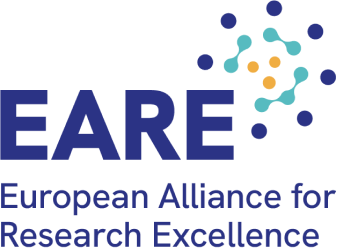
Answer to the European Commission’s public consultation on Data Act and amended rules on the legal protection of databases
The European Alliance for Research Excellence, a coalition of companies and research organisations formed in 2017 committed to the future of innovation and R&D in Europe, welcomes the European Commission’s ambitions to increase access to and further use of data through a new “Data Act”.
The Covid-19 crisis showed the pressing need to accelerate the digital transformation of the global economy, and with it the need to have clear rules regarding data sharing and access. The enhanced sharing of data, in particular, will be key to encouraging the development of Artificial Intelligence (AI) in Europe, which offers vast potential for economic growth and can help generate insights to address some of society’s biggest challenges, from healthcare to the environment. There is a broad recognition from regulators and industry that making data more open and accessible is critically important to foster collaboration and help drive European research and competitiveness in AI. Opening up access to data for better research outcomes, such as making progress in medical science, and supporting Europe’s ability to bring new innovative products and services to the market for the benefit of consumers, is achievable and preferable to data being withheld by a few public or private organisations.
To achieve this objective, we believe that policy efforts should concentrate on creating coherent and easy-to-understand frameworks to increase stakeholders’ trust and encourage them to access and collaborate with data in an effective, fair and non-discriminatory manner, as well as open up and re-use data across Europe, in line with European values, including privacy rules. Therefore, we call on the EU to ensure that the numerous and complex data-related reforms currently considered (e.g. the Artificial Intelligence Act, the Data Act, the Data Governance Act – coupled with some sectoral initiatives like the European Health data space) unleash research and innovation rather than stifle it.
In addition, such efforts will only achieve its objective of stimulating responsible innovation in Europe, with a holistic approach to data governance if other relevant EU-legislation is properly implemented. We call on the EU to support the effective and harmonised implementation of policies that impact the availability and use of data, such as the EU Copyright Directive’s Text and Data Mining exception, which will ease access to data across Europe, the Directive on Open Data and Re-Use of Public Sector information, which will decrease barriers and encourage access to public sector and publicly-funded information, and the Data Governance Act currently negotiated, which has the potential to enhance access to public sector data for European innovators.
On the upcoming Data Act more specifically, the public consultation published by the European Commission outlines many different issues currently considered, with business-to-business (B2B) data sharing, business-to-government (B2G) data sharing, and the review of the Database Directive being of particular interest to EARE.
Regarding B2B and B2G data sharing, we would like to reinforce the need to consider collaboration models that allow organisations to voluntarily share data while maintaining control and safeguarding private or sensitive information. These can include innovative governance structures (data trusts, data cooperatives or data commons), effective legal agreements that facilitate access to data (model contract terms for voluntary data sharing agreements) and the use of technologies that help protect privacy and strengthen security. Overall, EARE would caution the European Commission against introducing mandatory B2B or B2G data sharing obligations, as this could raise legitimate concerns around sensitive information. If such obligations were nonetheless introduced, we would recommend for their respective scopes to be narrowly and carefully defined.
Regarding the Database Directive, a 2018 study commissioned the European Commission to collect evidence on the impacts of this Directive notes that “the effectiveness of the sui generis right, as a means to stimulate investment on databases, remains unproven”. Consequently, EARE considers that the sui generis right should be repealed. At the very least, the Database Directive should be amended so that producers of databases wishing to benefit from the sui generis right should register first – and so that public sector datasets are excluded from the scope of the Directive. In addition, EARE recommends excluding machine-generated data from the scope of the Directive, as such an inclusion would have a strong negative impact on research and innovation.
In short, we believe that making data “as open as possible”, while respecting strong security and privacy requirements, is critically important to foster collaboration and help drive European research and competitiveness. Promoting data-driven innovation in Europe requires input from government, industry, academia, and other stakeholders.


